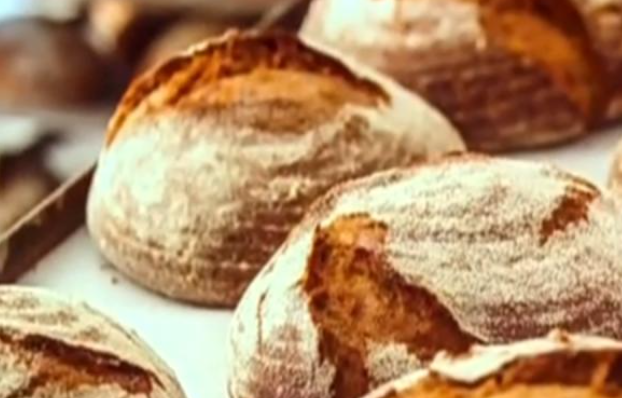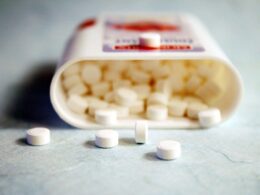the health strategist
multidisciplinary research institute
for continus health transformation
Joaquim Cardoso MSc
Founder and Chief Researcher & Editor
February 27, 2023
EXECUTIVE SUMMARY
There is a huge disparity between food regulations in Europe and the United States.
- Potassium bromate, a suspected carcinogen used to strengthen dough, is banned for human consumption in Europe, China, and India, but is still used in over 100 products in the United States.
- Professor Erik Millstone, an expert on food additives at the University of Sussex, warns that the chemical could be toxic to human consumers and may even promote the development of tumors.
- Millstone also identifies several other chemicals and substances banned in Europe that are still permitted in the U.S.
- The report notes that most Americans are likely unaware of the dangers of these substances and may assume that if a product is available in a store, it must be safe.
While the U.S. Food and Drug Administration (FDA) claims that all food additives undergo pre-market evaluation and require evidence of safety, Millstone suggests that European regulators take a more cautious approach.
- The FDA acknowledges that not all potassium bromate used in food production may convert into a harmless substance, but notes that control measures are in place to minimize its presence in final products.
- It’s not just potassium bromate.
- A range of other chemicals and substances banned in Europe over health concerns are also permitted in the U.S., including
– Titanium dioxide (also known as E171);
– Brominated vegetable oil (BVO) (E443);
– Potassium bromate (E924);
– Azodicarbonamide (E927a) and
– Propylparaben (E217).
- The report suggests that differences in food regulations between the U.S. and Europe may be making Americans sick.
DEEP DIVE

U.S. food additives banned in Europe: Expert says what Americans eat is “almost certainly” making them sick
CBS News
BY HOLLY WILLIAMS, ERIN LYALL
FEBRUARY 20, 2023
London — From baguettes to focaccia, Europe is famous for its bread. But there’s one ingredient conspicuously missing: Potassium bromate. It’s a suspected carcinogen that’s banned for human consumption in Europe, China and India, but not in the United States.
In the U.S., the chemical compound is used by some food makers, usually in the form of fine crystals or powder, to strengthen dough. It is estimated to be present in more than 100 products.
“There is evidence that it may be toxic to human consumers, that it may even either initiate or promote the development of tumors,” professor Erik Millstone, an expert on food additives at England’s University of Sussex, told CBS News. He said European regulators take a much more cautious approach to food safety than their U.S. counterparts.
Asked if it can be said with certainty that differences in regulations mean people in the U.S. have developed cancers that they would not have developed if they’d been eating exclusively in Europe, Millstone said that was “almost certainly the conclusion that we could reach.”
It’s not just potassium bromate. A range of other chemicals and substances banned in Europe over health concerns are also permitted in the U.S., including Titanium dioxide (also known as E171); Brominated vegetable oil (BVO) (E443); Potassium bromate (E924); Azodicarbonamide (E927a) and Propylparaben (E217).
It’s not just potassium bromate. A range of other chemicals and substances banned in Europe over health concerns are also permitted in the U.S., including Titanium dioxide (also known as E171); Brominated vegetable oil (BVO) (E443); Potassium bromate (E924); Azodicarbonamide (E927a) and Propylparaben (E217).
Millstone, who’s spent almost half a century researching food and agriculture science, said most Americans were likely completely unaware that they were being exposed on a daily basis to substances in their food viewed as dangerous in Europe.
“They probably just think, ‘Well, if it’s available or it’s in the store, it’s probably fine,’” he said.
In a statement to CBS News, the U.S. Food and Drug Administration (FDA) said
- all food additives require “pre-market evaluation” and “regulations require evidence that each substance is safe at its intended level of use before it may be added to foods.”
- “Post-approval, our scientists continue to review relevant new information to determine whether there are safety questions and whether the use of such substance is no longer safe,” the agency added.
Stacy McNamara is from upstate New York, but she has lived in London for a decade. She said raising children in the U.K. had opened her eyes to what’s allowed in foods in the U.S.
McNamara has no plans to ever move back home, and she told CBS News that food safety was “for sure” a part of that decision.
In a statement to CBS News, the FDA said that when used properly, potassium bromate converts into a harmless substance during food production.
The FDA acknowledged, however, that not all of the compound used in any given recipe may convert during the production process, but that control measures were utilized to minimize the amount in final products.
Originally published at https://www.cbsnews.com on February 21, 2023.
Names mentioned
- Professor Erik Millstone — an expert on food additives at England’s University of Sussex.
- Stacy McNamara — a US citizen living in London who has become aware of the differences in food regulations between the US and Europe.
- The US Food and Drug Administration (FDA) — the federal agency responsible for ensuring the safety of food, drugs, and medical devices in the US.












